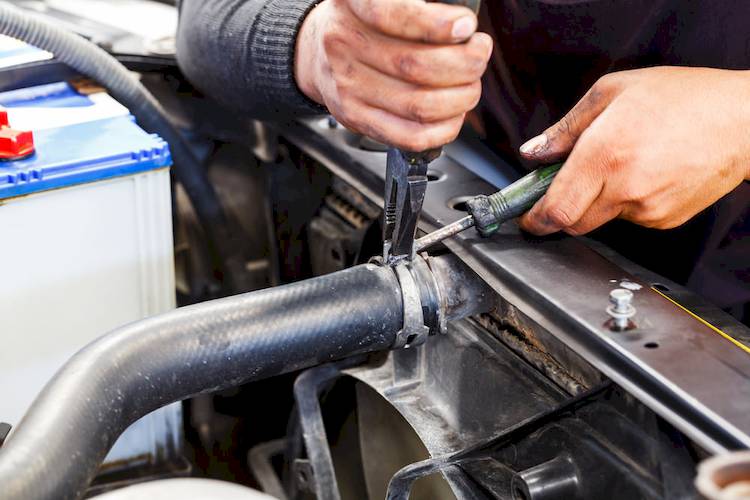

While the largest part of your engine is mechanical, hydraulics plays a significant role. You’ll find fluids at work in a number of different areas. Your car's fluids include:
- Engine oil
- Transmission fluid
- Coolant
- Power steering fluid
- Brake fluid
- Washer fluid
All of these fluids must be transported from one place to another in order to do their job. While some fluids run primarily within the engine or another component (oil, for instance, or transmission fluid), others don’t. Consider engine coolant – it’s stored in your radiator and overflow tank/reservoir, but must move from there to the engine and then back again. Power steering fluid is another prime example – it must be moved from the power steering fluid reservoir at the pump, into the rack and then recirculated once more. Moving fluid from one area to another requires hoses, and hoses are prone to wear and tear. They’ll eventually decay and need to be replaced.
Hose leaks and their causes
Hose leaks are caused by a number of different factors. The primary one is heat. Hoses in the engine bay are exposed to high temperatures on a regular basis, both inside and out. For example, coolant hoses must deal with heat from the engine, as well as heat from the coolant itself.
While very resilient, rubber (the primary material for all hoses) does degrade. Exposure to high temperatures causes the rubber to dry out. As it dries, it becomes brittle. If you’ve ever squeezed a worn out hose, you’ve felt the “crunch” of dry rubber. Brittle rubber doesn’t do well with pressure or heat, and will eventually rip, tear or at least decay to the point that you have a pinhole leak with fluid spraying out.
Another cause is contact with a hot or sharp surface. The wrong size hose, or one that has been kinked into an incorrect position, may contact sharp or very hot surfaces in the engine bay. Sharp areas will wear away at the hose, essentially cutting through the rubber (fueled by vibrations from a running engine). Hot surfaces can melt rubber.
Finally, when you combine pressure with heat exposure, you have a recipe for leaking. Most of the hoses in your engine carry pressurized fluid, including hot coolant, pressurized power steering fluid, and pressurized brake fluid. After all, hydraulic systems work because fluid is pressurized. That pressure builds within the hose, and if a weak spot develops, it will punch through, creating a leak.
Hose leaks may have nothing to do with the hoses at all. If the leak is located at an end, the problem may actually be the clamp securing the hose to the nipple or inlet. A loose clamp can cause a very serious leak without any damage necessary to the hose.



